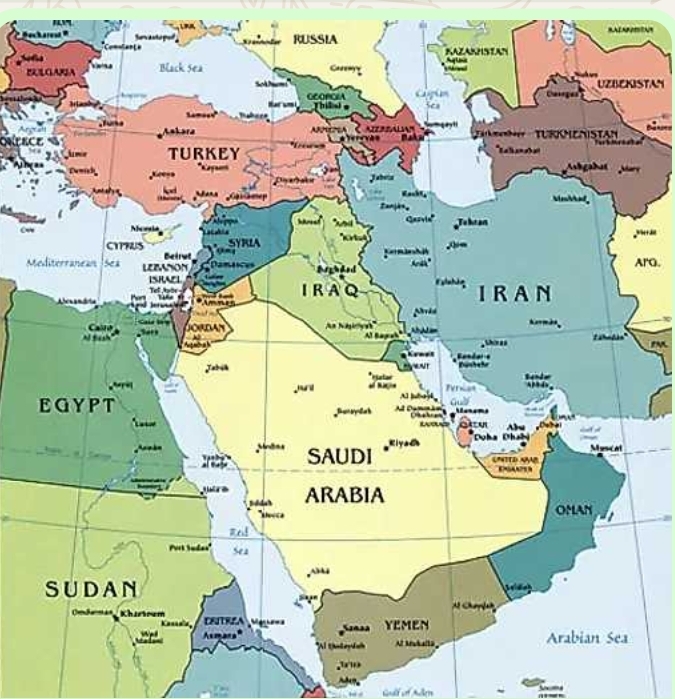MIDDLE EAST: UNDER THE SHADOW OF WAR
The volatile situations in Gaza and Iran present pressing issues that require thoughtful consideration. This essay explores the ongoing Gaza conflict and tensions surrounding Iran and the United States. It critiques the current coercive diplomatic approaches, rooted in realpolitik, which diverge from traditional diplomatic norms. Each case is analyzed for its key problems, potential consequences, and paths forward, illustrating the need for a return to more constructive diplomatic engagements.
In Gaza, the conflict has escalated dramatically in recent years. Israel’s military operations have faced significant backlash due to their perceived disproportionate violence. The blocade or denial of all necessary supplies, the targeting of civilians and critical infrastructure, including schools and hospitals, has compounded humanitarian suffering among the Palestinian population. International humanitarian law has been increasingly disregarded, leading to allegations of genocide or war crimes. The destruction caused by military actions renders much of Palestinian society vulnerable and in dire need of aid. The unwavering support from the United States, particularly under the Trump administration for Prime Minister Netanyahu, has emboldened Israel’s hardline stance. This support has undermined the peace process by creating an environment where compromises seem less likely. For instance, during recent ceasefire negotiations, Israel’s position was notably strengthened by U.S. backing, which has contributed to a failure in reaching substantial agreements.
Turning attention to the dynamics between Iran and the United States, the situation remains fraught with tension. The attempt to revive the Joint Comprehensive Plan of Action (JCPOA), designed to curb Iran’s nuclear ambitions, showcased significant challenges. The implementation of the Trump administration’s “maximum pressure” campaign through harsh sanctions created an adversarial climate that poisoned the waters for potential diplomacy. The reliance on threats of military action rather than negotiations has turned international relations into a test of wills. Events like possible attacks on oil tankers in the Strait of Hormuz and the ongoing targeting of liners in the Red Sea highlight the high-stakes nature of this situation. The failure of diplomatic efforts can lead to regional instability, affecting global trading, oil markets and escalating conflicts.
These regional conflicts have far-reaching implications. The risk of wider wars involving groups such as Hezbollah or Iranian forces continues to loom. Escalation could ignite the Middle East, leading to broader regional instability. Economic consequences would inevitably follow, as disruptions in trade and potential energy price shocks could strain the global economy. Additionally, there could be an increase in refugee crises, putting further pressure on neighboring states and exacerbating social tensions. The erosion of international law through threat-based diplomacy poses a dangerous precedent that undermines global multilateralism and the principles that traditionally govern international relations.
To navigate these crises, a balanced diplomatic approach is essential. Leveraging conditional engagement can help shift the negotiation dynamics positively. In the case of Gaza, linking U.S. military aid to Israel’s adherence to international humanitarian law could spur compliance and support a credible peace process. For Iran, providing sanctions relief in exchange for verifiable nuclear limitations can create pathways toward constructive dialogue. Furthermore, involving multilateral mediators, such the UN and the European Union or countries like Russia and China, could facilitate a neutral ground for negotiations.
Civil society also plays a crucial role in shaping the discourse around these conflicts. Advocacy movements can pressure governments and challenge the legitimacy of coercive diplomatic practices. Public protests, awareness campaigns, and informational initiatives can promote a narrative that favors ethical diplomacy over aggressive realpolitik. This engagement can mobilize support for more humanitarian-focused policies, advocating for respect for international laws.
In conclusion, the current trajectory in Gaza and Iran is unsustainable, characterized by escalating cycles of violence and significant humanitarian crises. The historical reliance on coercion and threats must shift toward a model that emphasizes reciprocity and good-faith bargaining. Leaders must recognize the importance of constructive dialogue if there is to be any hope for resolution. Adopting a nuanced, balanced approach to diplomacy could open pathways to a more stable and peaceful future for the region and the world.




